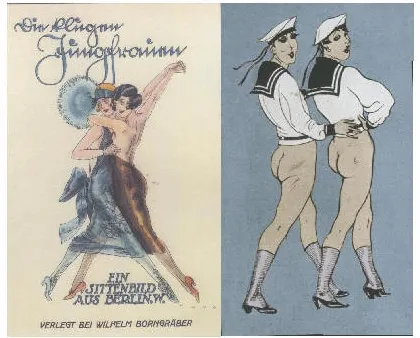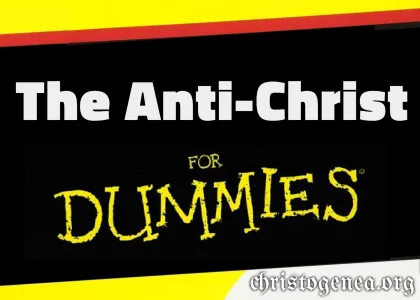Search form
Christogenea is 100% reader supported. If you find value in our work, please contribute and help to keep it going! See our Contact Page for more information!
Commentaries and Podcasts
Mark Chapters 4 and 5
Mark Chapters 4 through 5 - 10-21-2011
Here tonight we shall see, when we get to Mark chapter 5, that there are a couple of discrepancies in the chronology of events between Mark and Matthew, where Luke agrees with Mark, which are difficult to resolve. These do not, however, discredit the Gospel, once we realize the nature of the Gospel accounts and their purpose. At this point, Mark chapters 4 and 5 contains events found in Luke chapters 8 and 9, and also in Matthew chapters 8 and 9.
IV 1 And again He began to teach by the sea, and a very large crowd gathers to Him, so as for Him boarding into a vessel to sit in the sea, and all the crowd was by the sea upon the land.
In the ancient Greek world, it was very common for teachers of philosophy to have many followers, and to teach people in diverse places. In Acts chapter 19:9, we see a certain school of philosophy mentioned. Such schools were begun by private individuals who would attract - or perhaps already had – adherents to their philosophy. Sophists, Platonists, Epicureans, Stoics, Cynics, Gnostics, there were many different types of philosophical beliefs in the world at that time, and each had many followers and many teachers. Therefore if Christ had a few dozen followers, He would never have been so despised by the religious authorities in Judea, since it was quite normal for a philosopher to have and be followed by a few dozen students. Yet if Christ had hundreds, then hundreds more would have joined the crowd simply out of curiosity, if for nothing else, and it is not hard to imagine that there were thousands of people at many of His gatherings. By this, the official authorities would indeed feel threatened.
Mark Chapters 2 and 3
Mark Chapters 2 through 3 - 10-14-2011
II 1 And entering again into Kapharnaoum, for days it was heard that He is in a house. 2 And many had gathered together so as no longer to have space, not even there by the door, and He spoke the Word to them. 3 And they come bringing to Him a paralytic being carried by four men. 4 And not being able to bring him forth to Him because of the crowd, they had taken off the roof where He was, and digging through lowered the cot upon which the paralytic laid.
The men with the paralytic had “taken off the roof” and then “digging through” it they lowered the paralytic to where Christ was. The roof being described must be a thatched roof covered with ceramic tile, and the version of this account at Luke 5:19 tells us they were ceramic tiles. The tiles were expensive and surely were not broken. Digging trough the thatching must have made a mess, clouds of dust and dirt and straw dropping into the room below. Yet Christ did not take umbrage to the situation. Rather, He marveled before the crowd.
The New Weimar Republic

This is a presentation of William Finck's 2011 article The New Weimar Republic (and a Very Brief and Partial History of Modern Christendom)
Mark Chapter 1
Mark Chapter 1 - Christogenea on Talkshoe 10-07-2011
There is nothing at all in the Gospel of Mark which explicitly indicates its authorship. However many of the earliest Christian writers have not only attributed the gospel to Mark, but have also said that Mark recorded Peter's testimony, even calling him “Peter's interpreter”, in the words of the second-century Christian presbyter Irenaeus. This seems to indicate that Mark wrote the Greek which Peter may have related to him in Hebrew, however such a viewpoint is not entirely necessary, and the word may have simply been used more loosely of a transcriber and not necessarily of a translator. In other words, the statement does not by itself prove that Peter was not bilingual. Peter is mentioned 19 times in Mark's gospel, but that is not too frequent since he is mentioned just as often in Luke, and even more often in the gospels of Matthew and John. Yet in one place there is a special mention of Peter, where there really need not have been, and that is at 16:5-7 where it describes the women arriving at the tomb of Christ: “5 And having entered into the tomb they saw a youth sitting on the right clothed in a white robe, and they were astounded. 6 Then he says to them: 'Do not be astonished! You seek Yahshua the Nazarene who had been crucified. He has arisen, He is not here! Behold the place where they laid Him! 7 But you go tell His students and Petros that He goes on before you into Galilaia. There you shall see Him, just as He said to you!'” This special mention of Peter seems to support the testimony that the man who related the account to its writer was indeed Peter himself. Here are some of the ancient testimonies concerning the authorship of this gospel....
The Culture of Corruption, The Heretic's Hour with Carolyn Yeager
On Monday, October 3rd, 2011, at 9:00 PM U.S. Eastern time William Finck was on The Heretics' Hour with Carolyn Yeager. The discussion centered around the Philthadelphia article which appears here and in the July 2011 edition of The Saxon Messenger.
Malachi - 09-30-2011
Comments written on January 26th, 2017, as I begin to prepare a more formal presentation of Malachi:
Back in September of 2011 Christogenea had a server crash. At that time we had only 2 servers, the second one was very small, and it took all week to put the main server and websites back together again. We had little sophistication at that early time, and no online backups. So come Friday, whereas we had no time to prepare a program, we did an extemporaneous presentation of Malachi. Now, over six years later, we can finally endeavor to present a fuller commentary for this wonderful book of prophecy.
In our first Malachi presentation, we may have been more specific in some areas, we were not quite as accurate as we would have like to have been in others, especially concerning when it was that Malachi had prophesied. We could have also elaborated to a greater extent on many details. Now we pray that we can atone for at least some of our shortcomings.
When this new commentary is ready, it will be found here: /podcasts/malachi-commentary
- William Finck
Misconceptions Concerning Paul and the Church
This presentation is based on William Finck's 2007 essay, Misconceptions Concerning Paul and the Church
Matthew Chapter 28
Matthew Chapter 28 - 2011-09-23
Before we get into the final chapter of Matthew, chapter 28, it may be fitting to discuss just why it is that Christians should believe in a resurrection. There are many supposed Christians who have rejected the notion of the resurrection, shamed by so-called science – mistakenly believing that the science of man should be able to explain everything and anything, and therefore whatever it cannot explain cannot be true. This is the folly of humanism, which believes that man is god, and therefore anything that man cannot understand is fiction. Their own evolution theory is of course an exception to this. In truth, man is not god, and the true God will not be mocked.
If we believe that God created the heavens and the earth, and it is absolute folly to believe that they were created by chance, then we must by necessity believe that God transcends the physical creation as we know it. If we believe that Adamic man was created in the image of God and bears His spirit, then we can imagine that Adamic man can also transcend the physical world as God does. In the Wisdom of Salomon, at 2:23, it says: “For God created man to be immortal, and made him to be an image of his own eternity.” If God has no efficacy in the reality of creation, then our faith is vain. As Paul told the Corinthians, “If only in this life have we had hope in Christ, we are the most pitiable of all mankind.” (1 Corinthians 15:19)
A Conversation with Carolyn Yeager
Carolyn Yeager is a World War Two and Holocaust (What Holocaust?) Historical Revisionist who has written extensively on topics such as the real Auschwitz, Operation Valkyrie (the plot against Hitler by German officers), and the fraud Eli Wiesel. See her websites at carolynyeager.net and eliewieseltattoo.com
Matthew Chapter 27, Part 2
Christogenea on Talkshoe – September 16th, 2011 – Matthew Chapter 27, Part 2
I think of the Nuremberg trials, or the fate of Sylvia Stolz, or see what they did to Germar Rudolf and Udo Walendy and Robert Faurisson, and a thousand other unjust railroadings in this day, and I think of the trials of Christ. Taken by force in the middle of the night by a mob of so-called officials, the jewish tyranny often operates in much the same way today, which is the same way as the bolsheviks also operated in Soviet Russia. Wherever you find jews, you find tyranny and oppression conducted in the name of justice.
This is the twenty-second week of our presentation and discussion of the Gospel of Matthew. It will require at least one more week after tonight to bring it to completion. Last week we left off with Matthew chapter 27, verses 20 through 23, and we shall commence by repeating those tonight.
24 And Pilatos, seeing that nothing helps, but rather a tumult arises, taking water washed the hands before the crowd, saying “I am innocent from the blood of this man! You see to it!” 25 And responding all the people said: “His blood is upon us, and upon our children!” 26 Then he released Barabbas for them, but having scourged Yahshua he handed Him over in order that He would be crucified.
Discussing these circumstances at the end of last week's program, we focused on the situation that Pilate was in, and how it was difficult for him to avoid handing Yahshua Christ over to their desires. To me, this situation of Pilate's encapsulates something which has been a dilemma for our race since the beginning: the failure of man to properly confront evil, in exchange preferring love of the world and one's own comfort. Indeed, Pilate may have resisted the blood-thirty desires of the jews, but then he would have had to deal with their riotous behaviour and all of the political fallout which would certainly have followed. Christ Himself certainly understood Pilate's situation, and therefore said that “he that delivered me unto thee hath the greater sin”, as we read at John 19:11 in the discourse between Christ and Pilate which Matthew did not record.
Matthew Chapter 27, Part 1
Matthew Chapter 27 - 2011-09-09
Last week, among many other things that were evidenced while discussing Matthew chapter 26, we saw from the prophecy in Zechariah chapter 11 a direct connection between the thirty silver pieces for which Christ was betrayed to His enemies and the breaking of the Covenant which Yahweh made with the people, meaning of course the people of Israel. This is found at Zechariah 11:10-13, where it says: “10 And I took my staff, even Beauty, and cut it asunder, that I might break my covenant which I had made with all the people. 11 And it was broken in that day: and so the poor of the flock that waited upon me knew that it was the word of the LORD. 12 And I said unto them, If ye think good, give me my price; and if not, forbear. So they weighed for my price thirty pieces of silver. 13 And the LORD said unto me, Cast it unto the potter: a goodly price that I was prised at of them. And I took the thirty pieces of silver, and cast them to the potter in the house of the LORD.” While it was discussed in brief here last week, Zechariah chapter 11 itself requires a full study (which shall not be done here presently), because of ambiguities, and because of differences in the Masoretic text as it compares with the Septuagint version. Furthermore, the Brenton translation of the Septuagint Greek of this chapter is also wanting – or can at least be contested - in various places. Yet all of the versions agree on this one thing: that the covenant was broken, and the thirty pieces of silver are connected to that act.
Now it can be asserted and proven, that the old covenant which Yahweh made with the children of Israel at Mount Sinai beginning with Exodus chapter 19 was a covenant equivalent to a marriage contract between Yahweh and Israel, with God as the Husband and the entire nation of the body of Israel as the Bride. That this is a proper interpretation is evidenced in Isaiah, Jeremiah, Hosea, the epistles of Paul, and many other places. That old covenant being eternal, and within the laws of marriage set forth by God, the only way that it could be broken was with the death of either the Husband or the Bride. Since Yahweh promised that a new covenant would be made with Israel and Judah, for instance in Jeremiah chapter 31 and Ezekiel chapters 34 and 37, that would also necessitate the breaking of the old covenant, as Paul explains in Hebrews chapter 8, where he also quotes from Jeremiah. So we see that the fulfillment of the old covenant, its completion (which is the meaning of the Greek word which the King James Version often translates as fulfillment), took place on the cross of Christ as Paul explains in Romans chapter 7.
Charlotte of Mecklenburg was a White Woman and Not a Mulatto

The pictures and captions are courtesy of Wikipedia from their article, Charlotte of Mecklenburg-Strelitz
Matthew Chapter 26
Matthew Chapter 26 - 2011-09-02
Finishing the discourse of Christ concerning the destruction of Jerusalem, and of the time of the end, and of His return, which is contained in Matthew chapters 24 and 25, hopefully we saw how these things which He said, and the parables which He left us concerning the troublous times, the ten virgins, the wicked servant, and the sheep and the goat nations, all meshed with the many other prophecies concerning those same things, and that at the end of days and the return of Christ, all of His enemies are destroyed, and in the end there are none left but the sheep. This is the true promise of Christianity, when we shall indeed have heaven on earth, which is what Christians everywhere should pray for incessantly just as Yahshua Christ Himself had instructed us to pray, that things be “on earth as they are in heaven” when His kingdom comes. And it shall indeed come. Here we shall proceed with Matthew chapter 26
XXVI 1 And it came to pass that when Yahshua had finished all these sayings, He said to His students: 2 “You know that after two days it shall be Passover, and the Son of Man is handed over for which to be crucified!”
First, here we see Matthew tell us that now Yahshua had “ had finished all these sayings”, so we see that this marks the end of the discourse which began at the beginning of Matthew chapter 24 where the apostles had initially asked Him about the pending destruction of Jerusalem and the time of the end.
3 At that time the high priests and the elders of the people gathered together in the court of the high priest who is called Kaïaphas, 4 and they took counsel that with guile they shall seize and kill Yahshua. 5 But they said: “Not on the feast, in order that there would not be a tumult among the people!”
Matthew Chapter 25
Matthew Chapter 25 - 2011-08-26
Last week we covered Matthew chapter 24 and the Scriptures which discuss the abomination of desolation, “spoken of by Daniel the prophet”, which refers to several prophecies in Daniel chapters 11 and 12. We saw that the term reads “abomination which maketh desolate” in some manuscripts in some places in Daniel. The periods of time in prophetic days given by Daniel for this may be interpreted so that this abomination may be tied to both Mohammedanism & Judaism, and the Zionist Judaism which gave us the artificial Israeli state in 1948 in particular. Both Mohammedanism and Judaism, I believe, are Satanic religions devised by the jews, who have absconded the Old Testament and have abused the oracles of God for their own purposes.
We also discussed at length the prophecy by Christ concerning the budding of the fig tree, when it shoots forth its branches, and how that must have referred to that fig tree that was cursed by Christ. Let us read the parable of the fig tree, from Luke chapter 13: 6 Then He spoke this parable: “A man had a fig tree planted in his vineyard, and he came seeking fruit in it and found none. 7 And he said to the vine-dresser, ‘Look, it is three years from which I have come seeking fruit in this fig tree and I find none. Cut it down, for why should the land be useless?’ 8 But answering he says to him: ‘Master, leave it this year also, until when I should dig around it and cast manure 9 and so then it may produce fruit in the future, but otherwise if not, you shall cut it down.’” Jerusalem produced no fruit for Christ in His final year either. So the fig tree that was Jerusalem was indeed cut down, and from that time on we cannot imagine, under any circumstances, there ever having come one good thing from Judaism or from the descendants of those people. So where Christ says in Matthew 24:32-34: “32 Now learn from the parable of the fig tree, when already its branches should be tender and it would produce leaves, you know that summer is near. 33 Thusly also you, when you should see all these things, know that it is near by the doors. 34 Truly I say to you that by no means should this race escape until all these things should happen!” Today the jews are producing leaves, and their branches have extended to control all the earth. So we know that the harvest approaches.









 Please click here for our mailing list sign-up page.
Please click here for our mailing list sign-up page.







